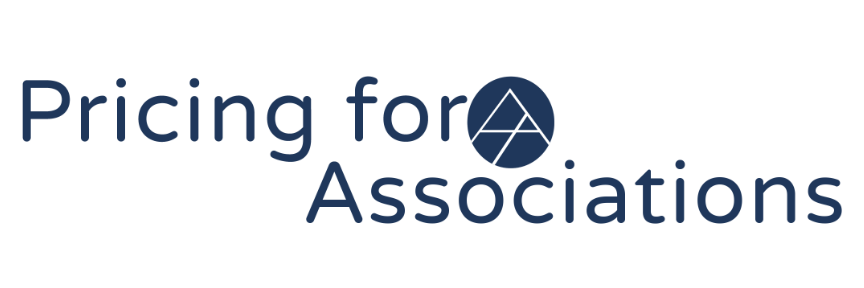Harnessing Interviews for Product Value
The following is an excerpt from our book, Pricing for Associations, available now on Amazon.
While surveys and focus groups are invaluable tools for gathering insights, there are times when a more personalized approach is needed to truly uncover the nuances of audience preferences and expectations. Enter the 1-1 interview — a method that offers a deep dive into individual perspectives.
When to Conduct 1-1 Interviews
1-1 interviews serve as a complementary method to focus groups, especially when nuanced insights are required or when participants may feel more comfortable sharing candid feedback individually. These interviews are particularly beneficial for high-stakes decisions like sponsorships or large sales, where unbiased feedback is crucial to inform strategic choices.
Purpose of 1-1 Interviews
The primary aim of 1-1 interviews is to delve deep into the individual perspectives of participants, allowing for a nuanced understanding of their preferences, pain points, and aspirations. By engaging in intimate conversations, interviewers can uncover insights that may not emerge in group settings, enabling associations to make informed decisions tailored to their audience's needs.
Advantages of 1-1 Interviews
Unbiased Feedback: Participants are more likely to share candid feedback without the influence of group dynamics, offering a clearer picture of their true sentiments.
Deep Dive: Interviews allow for in-depth exploration of individual experiences and perceptions, providing valuable context to quantitative data.
Personal Connection: Building rapport with participants fosters trust and encourages open communication, leading to richer insights.
Tailored Interview Question Templates
For Membership:
What motivated you to consider joining our association?
What specific benefits do you expect from a membership with us?
How can we enhance our membership offerings to better meet your needs?
For Educational Offering:
What topics or areas of expertise would you like to see covered in our educational programs?
How do you prefer to consume educational content (e.g., webinars, courses, workshops)?
What factors influence your decision to participate in educational activities?
For Certification:
What value do you perceive in industry certifications, and how do they impact your professional development?
Are there specific certifications you believe are lacking in our industry?
How important is it for certifications to be accredited or recognized by industry standards?
For Event:
What aspects of our events do you find most appealing, and why?
How do you prioritize networking opportunities when attending events?
What would make our events stand out from others you've attended?
For Sponsorship Opportunity:
What are your organization's key objectives when considering sponsorship opportunities?
What type of exposure or branding opportunities are most attractive to your organization?
How can we tailor sponsorship packages to better align with your organization's goals and values?
Interview Facilitation Tips:
Create a Comfortable Environment: Ensure participants feel at ease by creating a relaxed and welcoming atmosphere, even if virtually. Smiling and speaking slowly and warmly go a long way.
Active Listening: Practice active listening to fully understand participants' perspectives and ask follow-up questions to delve deeper.
Respect Confidentiality: Assure participants that their responses will be kept confidential to encourage open and honest feedback.
Stay Neutral: Avoid leading questions or biases that may influence participants' responses, maintaining objectivity throughout the interview.
By engaging in intimate conversations, associations can uncover nuanced insights that inform strategic decisions and drive the development of products and offerings tailored to their audience's needs. Through thoughtful interview facilitation and tailored question templates, associations can harness the power of 1-1 interviews to unlock valuable insights and propel their organizations forward.


